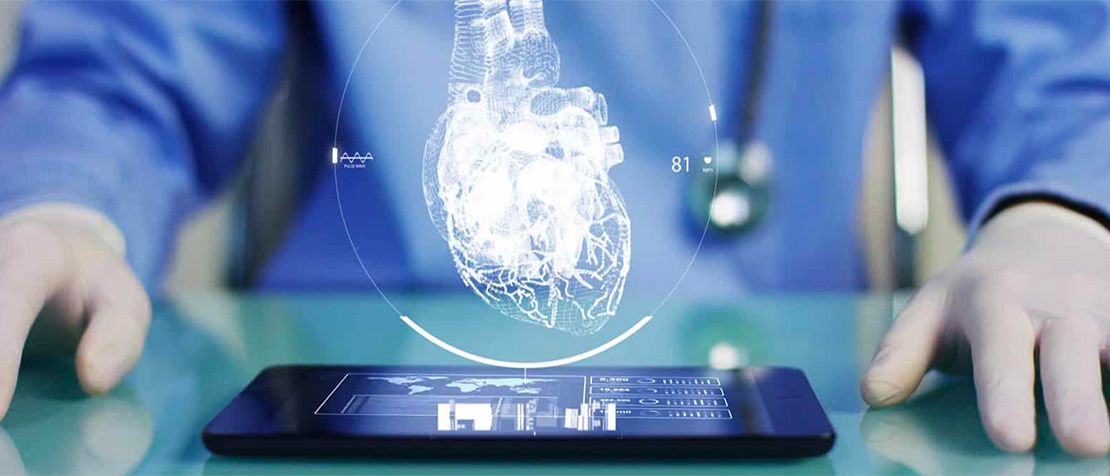
The opportunities and challenges of introducing AI to improve healthcare: Chaesub Lee
*The following article is adapted from opening remarks I will deliver tomorrow at ITU’s academic conference, Kaleidoscope. The conference is hosted this year by the Georgia Institute of Technology in Atlanta, United States from 4-6 December. The Kaleidoscope 2019 theme is “ICT for health: Networks, standards and innovation.”
Kaleidoscope 2019 will discuss the contribution of information and communication technologies (ICTs) to healthcare, but this discussion is emblematic of a larger trend.
We are living through a time of accelerating convergence.
Technologies are converging. Industries are converging. Our world has become highly interconnected.
ITU standardization work is now supporting digital transformation in areas ranging from energy and transportation to financial services; agriculture; smart cities; and, of course, healthcare.
In AI for health, ITU and WHO have launched our most ambitious initiative yet.
It is in this context that the ITU standardization platform, for many years central to building trust within the ICT sector, is now helping the ICT sector build trust with its many new partners – from automotive to fintech to healthcare, and many more.
Working in collaboration, thinking in a multidisciplinary way, we can create very meaningful improvements in the quality of life enjoyed by billions of people worldwide.
Kaleidoscope 2019 focuses on ICT for health
That is why this conference is named “Kaleidoscope”.
It views ICT innovation through a kaleidoscope to see its many dimensions. This year, we focus on ICT for health, but we will approach our discussions from a wide variety of perspectives.
ITU standardization work for digital health receives essential support from our longstanding partnership with the World Health Organization (WHO).
RELATED: Meet your virtual avatar: the future of personalized healthcare
But in AI for health, ITU and WHO have launched our most ambitious initiative yet.
AI for health
Our Focus Group on AI for Health aims to establish the foundations for AI to improve healthcare on a global scale. The Focus Group is open to all.
We are working towards the standardization of a framework and associated processes for the benchmarking of ‘AI for Health’ solutions.
RELATED: Artificial Intelligence for Health: ITU and WHO accept 8 new use cases
We aim to create a facility open to all innovators – an always-available online system for performance benchmarking.
We see potential to deliver metrics of great value to regulators.
National health regulators are accustomed to testing diagnostic tools such microscopes. However, these regulators are entering unfamiliar territory with the testing of testing methods such as AI models.
Like all software, AI solutions have a very dynamic update and release cycle. Traditional certification processes will not scale. As a result, AI models are not being certified and not being used.
The benchmarking framework being developed by the Focus Group will support the evolution of these certification processes.
The group is studying AI use cases for a range of health topics, including diagnostics chatbots, neuro-degenerative diseases, histology, vision loss, skin lesions, cardiovascular diseases, and psychiatry.
RELATED: AI for Health: Big potential, big challenges
And, of course, all these use cases demand data.
We are bringing different industries together. These industries are governed by different regulations. And we have different priorities and constraints when it comes to data.
It should come as no surprise, then, that many see data governance as an issue of critical importance to the success of AI.
In the AI era, data is the new commodity.
Alongside discussions about data privacy, we need to reflect on what kind of commodity data should be:
- Should it be like drinking water – abundant and free for all?
- Or like gold – relatively abundant but a valuable resource?
- Or like diamonds – where supply is carefully controlled to maximize value?
- Collective interests may prevail for public health, … but what about neglected and rare diseases?
- And how about, My data versus Your data mindsets?
An international dialogue is needed to define rules of engagement for data, a “Commons” for data, to ensure that all of humanity benefits from AI’s contribution to healthcare.
In health, we frequently hear, “Do no harm”. We are introducing AI into a field with no margin for error.
This is an area where a collaborative platform offered by ITU and WHO could deliver considerable value.
Data: A driving force for innovation
Data has become a driving force for innovation across all industries and public-sector bodies. And much like a natural resource, we will draw the most value from data if we reach international agreement on how to refine and share it.
Kaleidoscope 2019 is certain to make a valuable contribution to this discussion.
AI and health are natural companions. We see huge opportunities for AI to improve healthcare, but there are still significant challenges to be overcome. My remarks have focused on just two of these challenges: benchmarking and data governance.
RELATED: How new technologies can transform healthcare and make us healthier
In health, we frequently hear, “Do no harm”. We are introducing AI into a field with no margin for error.
This will be a true test of AI’s maturity and a true test of AI’s potential to better our lives.
Our experience introducing AI into the healthcare sector is certain to inform AI innovation in many other sectors.
